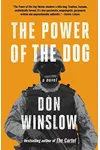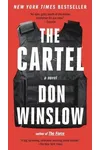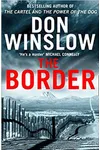Step into the gritty, pulse-pounding world of Don Winslow’s Power of the Dog series, where the war on drugs unfolds like a high-stakes thriller! This gripping crime trilogy follows DEA agent Art Keller as he navigates a treacherous landscape of cartels, corruption, and moral ambiguity. With its raw intensity and meticulously researched storytelling, the series pulls you into a decades-long battle that’s as thought-provoking as it is thrilling.
Blending historical fiction with noir, Power of the Dog doesn’t shy away from the brutal realities of the drug trade. From Mexican poppy fields to the streets of New York, Winslow crafts a saga that’s both a page-turner and a sharp critique of U.S. drug policies. Ready to dive into this epic tale? Let’s explore its origins, themes, and lasting impact.
How Power of the Dog Began
Don Winslow, a former private investigator, spent six years researching the drug trade to create Power of the Dog. Inspired by real events like the DEA’s Operation Condor and the murder of agent Enrique 'Kiki' Camarena, Winslow set out to craft a fictional yet authentic chronicle of the war on drugs. Published in 2005, the first book laid the foundation for a trilogy that spans from the 1970s to 2019, blending real-world events with complex characters.
Winslow’s goal was to expose the human cost of the drug war while delivering a gripping narrative. His background in crime investigation lent authenticity, and his vivid prose captured the chaos of a conflict fueled by greed, power, and betrayal. The series quickly gained acclaim for its unflinching honesty and cinematic scope.
The Heart of Power of the Dog
The trilogy consists of three novels: The Power of the Dog (2005), The Cartel (2015), and The Border (2019). In the first, we meet Art Keller, a driven DEA agent obsessed with dismantling the Barrera cartel, led by the cunning Adán Barrera. As Keller’s vendetta deepens, he uncovers corruption linking the U.S. and Mexican governments to the drug trade. The Cartel escalates the stakes, with Barrera’s prison escape sparking a bloody power struggle. The Border concludes the saga, tackling modern issues like the opioid crisis and border politics as Keller fights to stop the drug flow into America.
The series’ themes are raw and unflinching: corruption, loyalty, and the futility of the drug war. Winslow’s prose is sharp and cinematic, weaving multiple perspectives—from cartel bosses to priests and hitmen—into a tapestry of moral complexity. Set across Mexico, Central America, and the U.S., the trilogy captures the global ripple effects of the trade. Its blend of historical accuracy and thriller pacing makes it feel like a true-crime documentary brought to life.
Characters like Nora Hayden, a high-class call girl, and Sean Callan, a reluctant hitman, add emotional depth, showing how the drug war traps even those on its fringes. Winslow’s ability to humanize both heroes and villains keeps readers hooked, even as the violence shocks.
Why Power of the Dog Resonates
Power of the Dog has left a mark on crime fiction, earning praise for its bold critique of the war on drugs. Fans and critics alike laud its relevance, with reviews calling it 'the most important crime saga in modern literature.' Its exploration of systemic corruption and the human toll of policy failures resonates in today’s debates on drug legalization and border issues. The series’ adaptation into an FX series underscores its cultural impact.
Beyond its political bite, the trilogy’s gripping characters and relentless pace have made it a fan favorite. It’s a masterclass in storytelling that challenges readers to question the cost of 'winning' a war with no end. For thriller fans, it’s a must-read that lingers long after the final page.
- Publication Years: 2005, 2015, 2019
- Books: 3 (The Power of the Dog, The Cartel, The Border)
- Genre: Crime thriller, historical fiction
- Notable Recognition: Optioned by 20th Century Fox; adapted into an FX series
Grab The Power of the Dog and dive into a thrilling world of cartels, courage, and tough choices. This isn’t just a story—it’s a front-row seat to a war that shapes our world!


